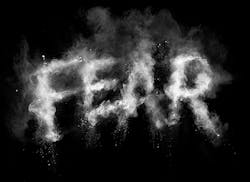Dateline: Charlotte, North Carolina – a 24 year old Jonathan Ferrell is shot and killed by Charlotte Officer Randall Kerrick. Under the influence (0.06 BAC) Ferrell had crashed the car he was driving and began banging on the front door of a neighborhood house after 2 a.m. The female occupant was home alone with her baby and quickly called police when it appeared that Ferrell was going to kick her front door. Officers were dispatched to a B&E and were confronted by Ferrell, a large former college football player, who would not stop and was unaffected by a Taser fired by one officer. The suspect ran towards the officers and was shot by Officer Kerrick. Ferrell tackled the officer into a ditch, was on top of him, when Kerrick finally stopped the suspect with his gunfire. Kerrick was interviewed immediately afterward and told by investigators to “go home and have a beer.” Less than eight hours later his attorney was called and told to surrender Kerrick who was being charged with Voluntary Manslaughter based largely on a dashcam which captured only part of the encounter. Kerrick was acquitted at trial.
This case was the subject of a National Public Radio show from Kelly McEvers called “Embedded.” The show’s premise is to “go deep” into stories of the past. In 2017, McEvers took a look at police video and the Johnathan Ferrell case was one. Here’s some highlights of that case:
McEvers – “Monroe (former Charlotte/Mecklenburg police chief) says they couldn’t escape the fact that Johnathan Ferrell was so clearly unarmed. Three officers should have been able to handle one unarmed man without shooting. Rodney Monroe says the way they came to understand the answer to that question, why, why did Kerrick fire the first shot, was because Kerrick was afraid. But because Johnathan Ferrell was unarmed, Monroe says he shouldn’t have been afraid.”
Monroe – “Fear can engulf you in a manner that won’t allow you to think logically or based on your training and I think more force was used than what was necessary. Than what he was met with.”
McEvers – “I can see what Rodney Monroe is saying. Wes Kerrick is afraid of Johnathan Ferrell. But why is he afraid?”
McEvers, discussing the trial of Kerrick and Lead Prosecutor Adrian Harris courtroom opening statement – “But Harris says the Taser doesn’t work and Johnathan Ferrell is scared.”
Adrian Harris (audio taped in the courtroom – “It is at that point that Johnathan Ferrell is in fear for his life, of being shot. He starts to run, or to trot.”
McEvers – “In other words on the video he is running away from the cops.”
Kelly McEvers – NPR “Embedded”; March 9, 2017
Fear – Ours is unreasonable / Their’s is understandable
Here we see, based on McEvers’ audio narration and editing that she believes as well as former police chief Rodney Monroe that the fear Officer Randall Kerrick experienced was unreasonable. The fact that he was responding to a potential felony in progress, confronted by a large suspect who was acting irrationally, someone who was not controlled by voice commands and the Taser, and who ran towards Kerrick who had his pistol pointed, who was not stopped by gunfire until he tackled Kerrick into a ditch.
That is all “unreasonable” in the eyes of the former chief and Kelly McEvers. After all, as McEvers intones, “why is he afraid…”
On the other hand, prosecutor Harris can apparently read the mind of the deceased suspect by stating in his courtroom strategy that Ferrell was afraid of the police and afraid of being shot. Of course, the question arises that Ferrell’s action were not normal if innocent as claimed.
We see this strategy being used against us nowadays. Suspects are running, attacking, drawing weapons, etc. because they are “in fear.” Fear of becoming the victim of police violence. Suspects, especially men of color, are victims of police violent encounters not violent criminal suspects who make the violent encounter happen in the first place.
From Harvard professor/researcher Roland Fryer, to a recent publication by three other college professors Cesario, Johnson and Terrill state “When adjusting for crime, we find no systematic evidence of anti-Black disparities in fatal shootings, fatal shootings of unarmed citizens, or fatal shootings involving misidentification of harmless objects.”
My own research into officer involved shooting data compiled by the Washington Post found that:
- 987 subjects were shot and killed by police in 2015
- In three-quarters of the fatal shootings, police were under attack or defending someone who was being attacked
- 28% of the subjects were shooting at officers or someone else
- 16% were attacking with other weapons or physical force
- 31% were pointing a gun
From last year’s Washington Post data:
· 976 people shot and killed
· 75% Armed with guns or knives (727 out of 976)
· 90% Armed with guns, knives, toy guns, “other,” or attacking with vehicle (882 out of 976)
Of course, based on WaPo data, more whites have been killed by police over the last three years than blacks or Hispanics:
456 Whites shot and killed 221 Blacks 179 Hispanics
963 Shot and Killed in 2016 466 Whites 233 Blacks 160 Hispanics
995 Shot and Killed in 2015 497 Whites 259 Blacks 172 Hispanics
This despite an increase in violence against police officers (29% increase in officers killed by gunfire compared to last year) and in 2016 according to the FBI Officers Assaulted stats, (2,377) officers were assaulted with firearms 11.9% were injured. *This was the highest number of officers assaulted with firearms in the last ten years.
But, according to McEvers, Rodney Monroe and many other activists and media personnel, we (the police) have nothing to fear…
The Science of Fear
The truth is that Officer Kerrick’s fear was a natural response based on the circumstances. The Sympathetic Nervous System prepares human beings for: fight, flight or freezing and carries with it both optimum and sub-optimum performance issues. The SNS changes the way officers see, hear, process information, move, communicate, and remember encounters, amongst many other varying psychological, physical, physiological effects and responses.
These effects and responses are the result of a suspect precipitated encounter or their actions. Though they can aid and assist the officer in controlling the suspect, they can also inhibit the officer’s responses. In short, in a perceived fight for your life, you do not make decisions and perform physically, as you would on the range or in the DT room. The SNS can empower you, but it can be a double edged sword.
Conclusion
Randall Kerrick was acquitted at trial because his use of force against Johnathan Ferrell was judged to be objectively reasonable based on the totality of the circumstances and his reasonable perceptions at the moment Kerrick’s force was used. Kerrick’s force should not have been judged based on what his chief believed about the reasonableness of Kerrick’s fear. McEvers “digging deep” on this story was actually just skimmed the surface. Like many “journalists” she appears to regurgitate her beliefs and biases on police use of force instead of looking at human performance under stress. Her statement/question “Why is he afraid?” shows her ignorance of police violent encounters but the bigger question is, “Why didn’t she ask an expert who knows?”

Kevin Davis | Tactical Survival Contributor
Kevin R. Davis retired from the Akron Police Department after 31 years with a total of 39 years in law enforcement. Kevin was a street patrol officer, narcotics detective, full-time use of force, suspect control, and firearms instructor, and detective assigned to the Body Worn Camera Unit. Kevin is the author of Use of Force Investigations: A Manual for Law Enforcement, and is an active consultant and expert witness on use of force incidents. Kevin's website is https://kd-forcetraining.com/



